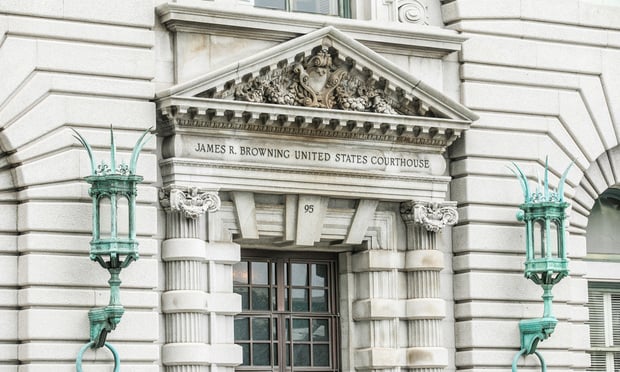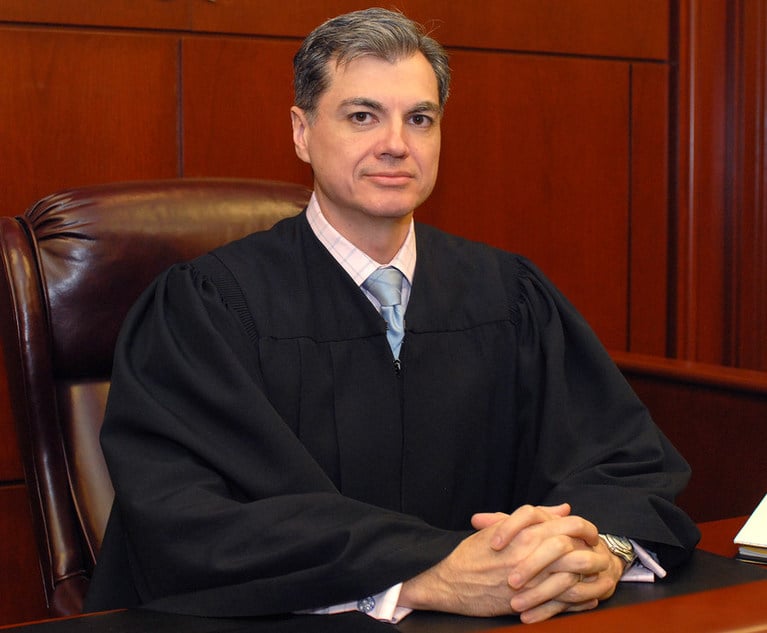A patchwork of courts across the nation are taking action in different ways to protect staff and visitors as concerns over COVID-19 spreads throughout the legal community.
In New York, a key federal trial court announced it is prohibiting guests who have visited certain affected countries from entering its Manhattan building. On the opposite coast in Seattle, which is also dealing with the outbreak, all proceedings requiring in-person hearings have been suspended.
The policy announced by the Southern District of New York Monday followed news that two local attorneys during the past week have been diagnosed with the illness, also known as coronavirus.
Quinn Emanuel Urquhart & Sullivan, where one of the lawyers works, closed its New York City offices as a precaution this week and implemented a work from home policy. The other lawyer works at Lewis and Garbuz, a small Midtown Manhattan law firm.
The U.S. Court of Appeals for the Fourth Circuit also took action late Monday afternoon, sending out calendar notices to litigants slated to appear for oral arguments from March 17-20. The notice asks lawyers to notify the court if they have a fever, cough, shortness of breach or if they have been exposed to anyone in the past 14 days who may have COVID-19. “This will enable the Court to reschedule an argument that might otherwise risk spreading the Coronavirus,” the notice said.
Here’s a roundup of how various state and federal courts are responding to the outbreak.
➤➤ California: California’s state courts have remained open and operating near normally as judges and court executives grappled with how to respond. California courts have a blueprint available for responding to a disease outbreak. In 2006, the agency known then as the Administrative Office of the Courts released “Epidemics and the California Courts” after a public scare over the so-called bird flu. The guidance recommends that judges stay “aware of the authority of health officials, as well as of constitutional implications of quarantine, isolation, and court closure.”
Meanwhile, the U.S. Court of Appeals for the Ninth Circuit on Friday said it was canceling en banc hearings this week.
➤➤ Florida: As fears about the spread of COVID-19 grips the world, a common theme has emerged in the response of South Florida state and federal courts: watching, planning, waiting—and sanitizing.
The Florida Supreme Court said it’s following its pandemic plans after Gov. Ron DeSantis declared a public health emergency. Having wrapped up oral arguments for March, the court will consider any precautions for April’s arguments in the coming weeks.
Miami-Dade Circuit has introduced hand sanitizer dispensers in all courthouse lobbies and says its emergency management team has been meeting with local partners and government officials to discuss preparation and response strategies.
Meanwhile, Broward Circuit Chief Judge Jack Tuter said his court is also following the Centers for Disease Control and Prevention’s guidance and has met several times to discuss the virus, most recently sitting down with stakeholders Friday. The Office of State Courts Administrator is taking the lead.
And it was a similar story at Palm Beach Circuit Court, where spokeswoman Debra Oats said staffers are following guidelines, meeting with local partners to draft plans in case of disruption, and staying in contact with the state supreme court’s emergency team.
➤➤ New Jersey: State and federal courts in New Jersey are keeping close tabs on the progression of the coronavirus, but so far it has had little impact on regular court routines. Disinfectant supplies have been distributed to staff at the U.S. District Court for the District of New Jersey, and employees are being advised to stay home if they feel sick, said Chief Judge Freda Wolfson.
In New Jersey’s state court system, out-of-state business travel by court staff is getting close scrutiny, and travel to locations substantially affected by the virus is not allowed, said Pete McAleer, spokesman for the Administrative Office of the Courts. But all court events are being held as scheduled.
➤➤ New York: As Gov. Andrew Cuomo announced new infections, with the largest cluster in Westchester County north of New York City, and unveiled a plan for the state to manufacture hand sanitizer, court officials began to announce restrictions aimed at slowing the spread of novel coronavirus.
U.S. District Chief Judge Colleen McMahon of the Southern District of New York issued an order barring persons who have visited five hard-hit countries from entering court buildings. And state and federal court administrative personnel were working on making sure that people who were sick could be easily excused from jury service. As Monday proceeded however, the SDNY district executive said he noticed no significant impact on appearances for jury service, and prosecutors said they had encountered no case delays.
➤➤ Texas: As coronavirus outbreaks crop up across the country, some Texas judges are planning for what might happen if coronavirus infections derail hearings.
Some state judges in Houston are gearing up to hold more hearings by video conferences and telephone, in lieu of in-person court appearances. Meanwhile, Chief Judge Rodney Gilstrap of the U.S. District Court for the Eastern District of Texas issued a standing order telling lawyers to communicate with their opposing counsel to find alternatives to in-person hearings or depositions.
Top judicial leaders also ordered each judicial region to appoint two on-call district judges who can hold hearings on the involuntary quarantine of coronavirus patients who refuse to self-quarantine, said David Slayton, administrative director of the Texas Office of Court Administration.
➤➤ Washington, D.C.: The U.S. Court of Appeals for the District of Columbia is not taking any action similar to New York or California at this time but is looking at its current argument schedule and determining what technology it has to hold hearings remotely, said Betsy Paret, the chief executive for circuit. The circuit already livestreams oral arguments.
Washington, D.C., had its first confirmed case of coronavirus over the weekend. An attendee of the Conservative Political Action Conference was also diagnosed, forcing several lawmakers at the conference, including Sen. Ted Cruz and Reps. Doug Collins and Paul Gosar, to self-quarantine.
➤➤ Washington state: Federal courts in western Washington state on Friday said they are suspending all civil and criminal matters requiring an in-court appearance due to an outbreak there. The order, in effect at least until March 31, does not impact judges’ considerations of civil or criminal matters that can be resolved on court filings without oral argument. The courthouses in Seattle and Tacoma remain open.
More than a dozen deaths in the U.S., the bulk of them in Washington state, have been attributed to the coronavirus outbreak, as the number of infected patients globally soared past 100,000 Friday.
Read more:
Manhattan Federal Court Restricts Visitors as Response to Coronavirus
Quinn Emanuel Partner Tests Positive With Coronavirus in NY; Firm to Keep Workers Home
Coronavirus Closures Hit Law Schools at Stanford, Columbia and Several Others
NOT FOR REPRINT
© 2024 ALM Global, LLC, All Rights Reserved. Request academic re-use from www.copyright.com. All other uses, submit a request to [email protected]. For more information visit Asset & Logo Licensing.


 United States Court of Appeals for the Ninth Circuit. Photo: Jason Doiy.
United States Court of Appeals for the Ninth Circuit. Photo: Jason Doiy.






